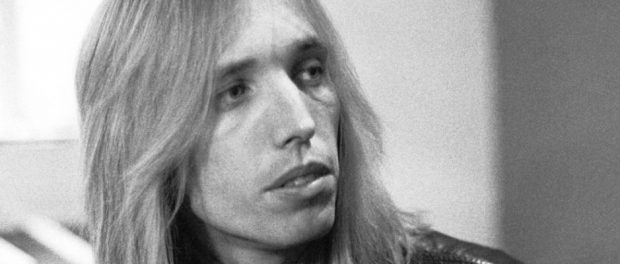Thinking about Tom Petty’s voice

Consider ‘American Girl’ by Tom Petty. The final track on his eponymous debut, ‘American Girl’ is built on a pretty standard pop-rock model. It sounds a little like Flamin’ Groovies – not hard rock, but rootsy and melodic in a way that would catch the ear of a passerby. It opens on a single chord – and stays there for a while – building a tension that finally gives way to Petty’s opening lines: “She was an American girl raised on promises / She couldn’t help thinking that there was a little more life somewhere else.” It couldn’t be more American romantic if it tried – the notion that something, anything is happening in the next town (or state) over, pulling from a deep seam of flight that has powered countless numbers of other songs.
Musically, there’s nothing particularly radical here: Petty believed in rock ‘n roll and rarely did his career stray too far from the early records by The Beatles and Rolling Stones that he grew up listening to. There’s a little rockabilly in one of the guitars and a honky tonk breakdown before a fade overlaid with some showy lead work, but nothing that would make it necessarily stand out from the crowd.
So what was it about ‘American Girl’ that made it into a radio standard? It’s surely Petty’s voice. Few would argue that he had a great singing voice: it’s a little nasal, reedy even, inviting comparisons to that other non-singer, Bob Dylan. But that’s more than enough. Through his distinctive tone, Petty offers the same escape that he saw in The Beatles: music as a route out from the mundane (and in his own case, the parental abuse he suffered as a youngster). He could do it, so could you. He offered opportunity. That his album was released a few weeks after The Damned released ‘New Rose’ over the Atlantic is above mere co-incidence: listeners wanted, and needed, to re-connect with something honest and with the energy of early rock ‘n’ roll.
We don’t spend much time considering the voice. For most of the genuine stars pop and rock music has thrown up, the value of a truly unique voice can’t be underestimated. Thousands of artists have followed in Petty’s footsteps, treading similar musical territory, but what’s often missing is a sense of real identity, of genuine difference. As soon as Tom Petty started to sing, you knew you were listening to a Tom Petty record. There’s value in being first: the opportunity to stake a claim. By paying tribute to the music of his youth, Petty created something recognisably his own. In the pale imitations that followed, something was lost. Nothing else was ever quite as sharp – the edges were fuzzier, blurred a little. Just not as good.
Petty staked his claim in the wide open space of American music. His roots ran deep. In his voice, you could hear hope and small town dreams. In his voice, you could hear rock ‘n roll.
